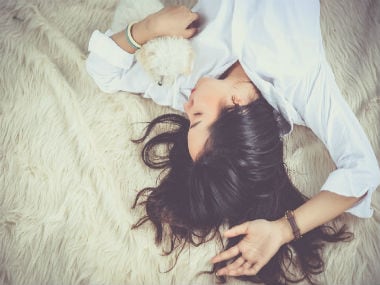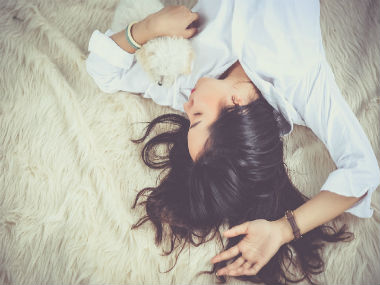After a long day at work, all you want to do is sleep. You lay your head on a soft pillow, close your eyes and hope to slip into a deep slumber. But sleep evades you. It’s cold comfort to know that many of your colleagues and neighbours are also tossing and turning as their tired bodies and anxious minds compete with each other, and steal precious hours of rest. Thankfully, sleep science is more active than ever before. Scientists are hard at work to understand the factors that help us to sleep and those that keep us awake. Read on to know some scientifically proven ways to fall asleep faster. [caption id=“attachment_7323501” align=“alignleft” width=“380”]  Representational image. Image by Jess Foami from Pixabay[/caption] Think opposite According to a recent study at the University of Glasgow, U.K., reverse psychology works here too - try to stay awake, and you’ll likely fall asleep faster. The study observed insomniacs and found that those who were simply told to go to bed struggled to fall asleep, while those who were told to lie down but stay awake fell asleep faster. So the next time you hit the sack, think to yourself “I should not sleep”, and see if the reverse psychology works on you, too. Take a warm bath Most of us know from experience that taking a bath with warm water helps to relax the muscles and melt away some of the tensions from the day gone by. Recently, a group of biomedical engineers at the University of Texas, Austin, looked at 5,322 studies to answer two questions: one, when should you take that bath so it helps you sleep better? And two, what temperature should the water be? The answer: take a bath 1 or 2 hours before bedtime with water that is heated to 104-109 degrees Fahrenheit or just over 40 degrees Celsius. The warm water gets the blood flowing; this helps to dispel body heat faster and get you prepped for sleep - body temperature falls slightly when we sleep. The biomedical engineers published their finding in the peer-reviewed journal Sleep Medicine Reviews, in June 2019. Hot water bottle trick According to a Swiss study published in the leading science journal Nature, warm feet and warm hands help in inducing sound sleep. For the study, researchers asked participants to place a hot water bottle at their feet before bed. The researchers found that this practice opened up the blood vessels on the surface of the skin, thus increasing circulation of blood from the centre of the body to the extremities - this also helped to lower the body temperature faster. Alternatively, you can also wear socks to bed. Music for sleeping Soft, slow and classical music is an antidepressant. Studies show that slow music with a rhythm of 60-80 beats can lead you into a deep slumber. Try listening to Marconi Union’s song Weightless to see if this works for you. Try 4-7-8 breathing Research shows that the 4-7-8 method can increase the amount of oxygen you make available to your body, regulate the heart rate and release carbon dioxide from the lungs. Here’s how to do it:
- Touch your tongue to the roof of your mouth, right behind the two front teeth. Keep your tongue here throughout the exercise
- Open your lips a little to exhale through your mouth with a whoosh
- Close your lips. Inhale through your nose as you count to four in your mind
- Hold your breath for the next seven seconds
- Open your lips a little, and exhale with a woosh through your mouth for eight seconds
- Keep your body relaxed throughout the process
- Repeat this cycle for four breaths
Let your imagination lead Instead of counting the stars or staring at the minute hand of your table clock, try exploring the world with your imagination. Think about a place, beautiful and calm, and imagine yourself there. Your imagination will help you to forget your worries and stress. Your head will feel lighter, and usher you into the world of sleep. Health articles in Firstpost are written by myUpchar.com, India’s first and biggest resource for verified medical information. At myUpchar, researchers and journalists work with doctors to bring you information on all things health. To know more about this topic, please see How to Fall Asleep.


)

)
)
)
)
)
)
)
)



